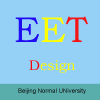-
Object model
普通类 -
- 支持
- 批判
- 提问
- 解释
- 补充
- 删除
-
-
Introduction
OBJECTS HAVE FOUR CHARACTERISTICS. They are self-contained (autonomous) and are made up of component parts. They belong to a category and they may have sub-classes of objects that inherit their characteristics and behaviors.
-
Autonomy

Objects ares self-contained. They have everything they need to respond to incoming messages
Objects are self-contained. That is, they respond in predictable ways to "messages" or stimuli from their environment. We infer that they have internal states and processes based on how they appear and behave.
-
Composite
The behavior and characteristics of an object's parts combine to produce the behavior of the whole object.-
Categorization
.jpg)
You can predict the behavior of these "drinking vessels."
We identify objects as belonging to categories of objects. We can predict the characteristics and behavior of an object based on those of its category.
If you recognize that an object belongs to the category "drinking vessels," you will predict that it is concave, it can hold liquids, it is sized to fit in a person’s hand, and so forth.-
Inheritance
.gif)
Objects inherit characteristics from "parent" objects, but may add unique characteristics.
Subcategories of objects inherit some or all of their characteristics from their "parent" categories, but may add new characteristics and behaviors of their own as well. A button object, for example, may spawn "child" buttons with identical sounds but different appearance.-
Author
Bob Hoffman, PhD.
-
-
- 标签:
- based
- parent
- characteristics
- drinking
- objects
- inherit
- predict
- model
- categories
- behavior
- object
-
加入的知识群:



学习元评论 (0条)
聪明如你,不妨在这 发表你的看法与心得 ~